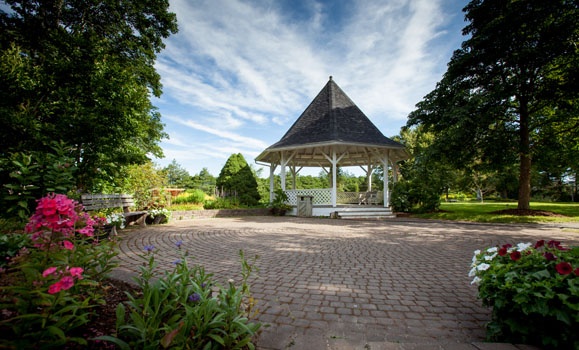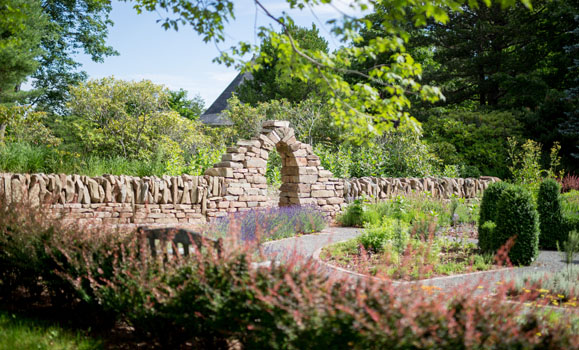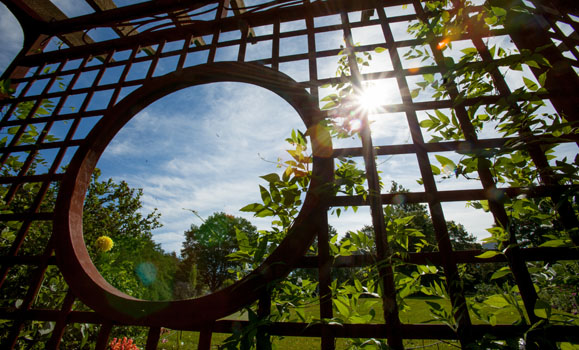News
» Go to news mainConnecting Communities

A single Black Ash will be planted to commemorate the launch of Dalhousie University’s Bicentennial Botanical Garden, Saturday August 25th on Dalhousie’s Agricultural Campus.
The Black Ash or ‘Wisqoq’ in Mi’kmaq, was designated as threatened under the Nova Scotia Endangered Species Act in 2013 and the Faculty of Agriculture has been working in partnership with Mi’kmawey Forestry as part of their conservation efforts.
Black Ash has always been important to the Mi’kmaw community who use the tree to make baskets, snowshoes, canoes and axe handles and 2000 black ash seedlings are being housed in greenhouses on the Agricultural Campus.
“This is just one example of what makes our gardens so special,” explained Dean and Campus Principal Dr. David Gray. “Specialist plant collections and unique features such as this Black Ash provide educational opportunities for our students and community members alike.”
The Bicentennial Botanical Garden comprises 11 hectares of unique and diverse features including wide-ranging plant collections as well as the largest Rock Garden east of Montreal. Shade, herb and bulb gardens, a butterfly meadow, an apple orchard and more beautify the busy campus.

Named in honour of Dalhousie’s 200th anniversary in 2018, the Bicentennial Botanical Garden is known as the Faculty of Agriculture’s largest classroom providing many hands-on learning opportunities for students and researchers alike.
“it truly is our largest classroom, a living laboratory,” explained Dean Gray. “Our Plant Science, horticulture and Landscape architecture students are all provided hands-on learning and research opportunities in the Garden as well as our Engineering students who provide hardscapes and other features that enhance our gardens and community spaces.”
A testing ground for new plants, the Bicentennial Garden is a repository for over 3000 types of trees, shrubs and plants – many of them unique to this region. In the spring, more than 70 varieties of tulips will blosson.
“Our entire campus environment becomes a classroom of learning, conserving, sharing, growing and socializing,” added Dean Gray.
The Bicentennial Botanical garden received a Canada 150 Garden Experience designation last year in celebration of Canada’s 150th birthday and is featured on the Nova Scotia Provincial Garden road trip.
To receive a Botanical Garden designation, the Faculty of Agriculture must be an Institutional member of the American Public Gardens Association and follows best practices in the management of its Botanical Garden - maintaining collections of plants for the purposes of public education and enjoyment, in addition to research, conservation and higher learning.
 The Bicentennial Botanical Garden is open to the public and is staffed and maintained by professionals trained in their given areas of expertise while maintaining active plant records systems.
The Bicentennial Botanical Garden is open to the public and is staffed and maintained by professionals trained in their given areas of expertise while maintaining active plant records systems.
The Botanical Garden is at its peak throughout spring and summer and into the fall and visitors can identify plants through labels, guide maps and other interpretive materials.
Guided tours will take place during the official launch on Saturday, August 25th from 10:00 a.m. – 2:00 p.m. For more information, please visit dal.ca/gardens
Recent News
- Shellfish Hatchery Training 2026
- Lab safety regulation updates
- From barns to bytes and back again ‑ Dalhousie University showcases digital livestock leadership in the UK
- DPMG Winter Warm up Party
- New Economic Impact Study highlights agriculture as a strong and growing pillar of Nova Scotia's economy
- 2026 Employee Appreciation Week
- Excellence in Student Leadership Awards 2026
- Photo Contest ‑ International Development Week 2026
